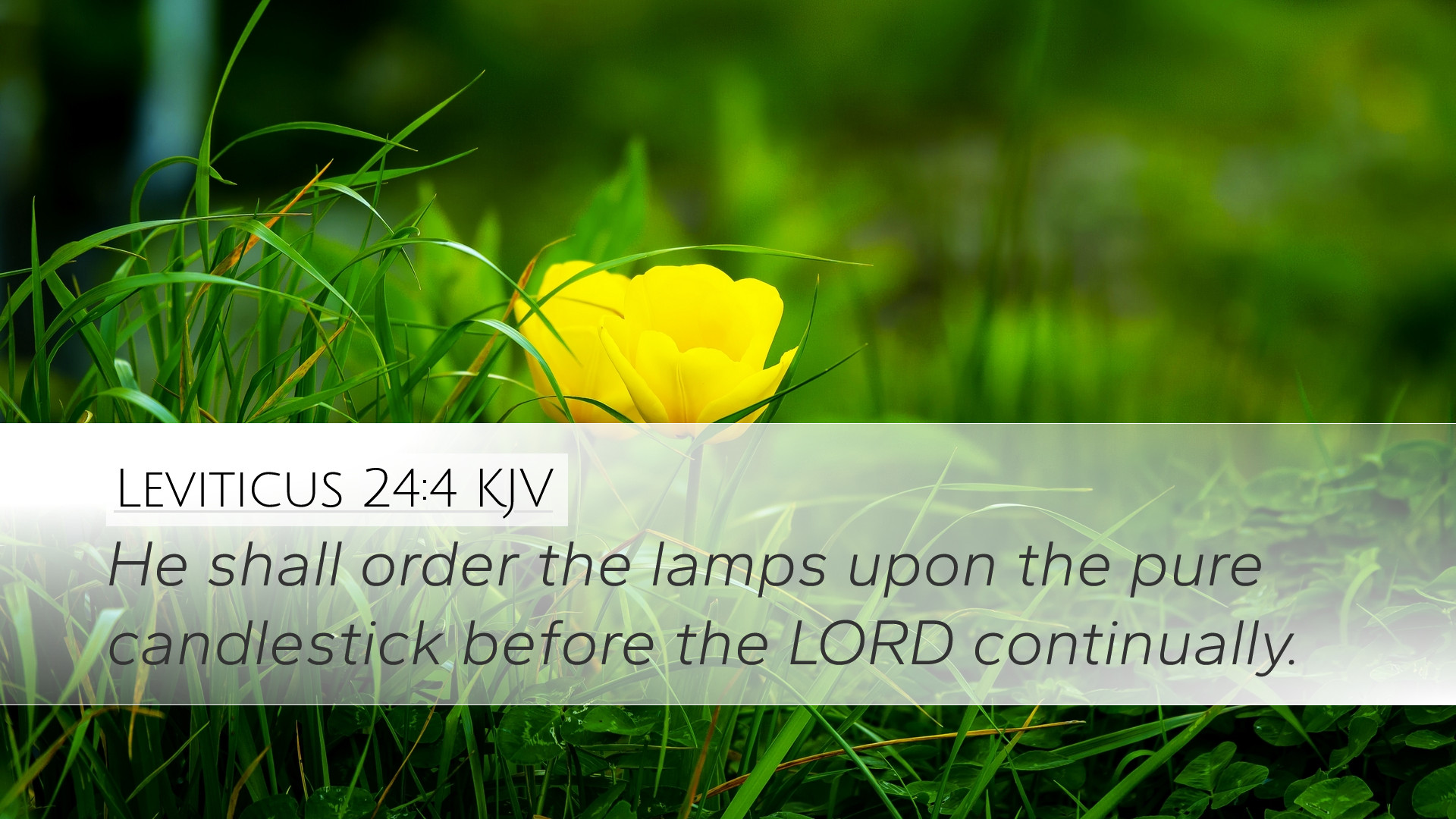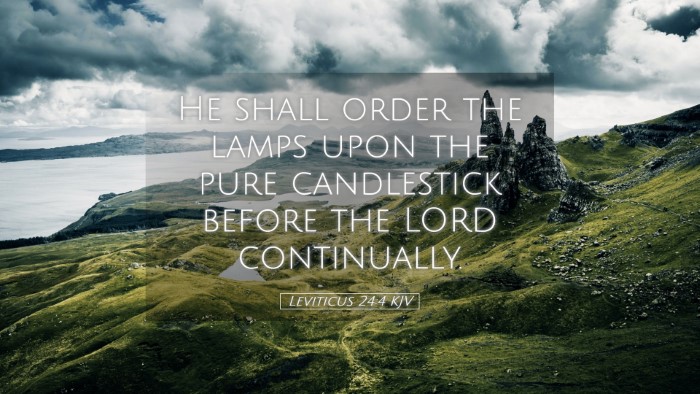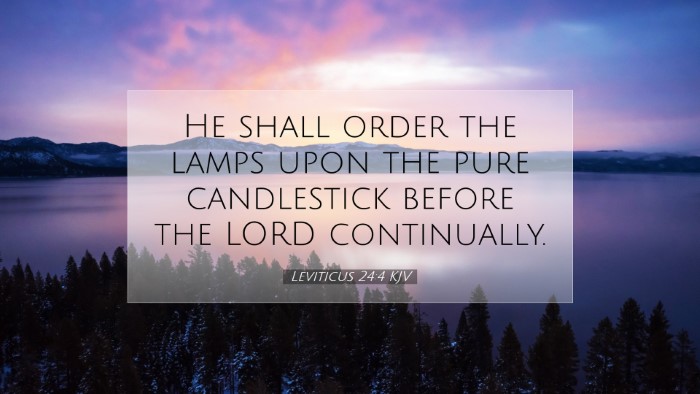Commentary on Leviticus 24:4
Bible Verse: Leviticus 24:4 - "He shall be in charge of the lamps on the pure gold lampstand before the LORD regularly." (ESV)
Contextual Background
The book of Leviticus provides vital regulations concerning the worship of God, emphasizing holiness and proper procedures in the Tabernacle. This particular verse speaks about the responsibilities of the priesthood, especially concerning maintaining the lamps on the golden lampstand.
Insights from Matthew Henry
According to Matthew Henry, this verse underscores the importance of the priest's role in tending to the lampstand, which symbolizes the light of divine truth among the people. The lampstand represents God's presence, and its continual light signifies the guidance and nourishment provided by God through His word.
- Symbolism of Light: The golden lampstand in the Tabernacle symbolizes the light of truth amidst the darkness of sin.
- Continuous Vigil: Henry emphasizes that the priests must maintain the lights regularly, portraying the constant vigilance required in spiritual affairs.
Observations from Albert Barnes
Albert Barnes notes that this duty assigned to the priest indicates the necessity of maintaining an enduring witness for God in the community. The lampstand's purpose was not merely functional but held profound spiritual significance.
- Role of the Priests: The lamps represent the enlightening presence of God among His people, and it is the priest's duty to ensure that this light does not go out.
- Responsibility of Leaders: This illustrates the duty of leaders within the church to uphold spiritual illumination, guiding others towards the truth of God's word.
Thoughts from Adam Clarke
Adam Clarke offers an insightful perspective on the lampstand's design and function. He remarks that the lampstand was made of pure gold, which reflects the intrinsic value and holiness of God’s presence in the worship space.
- Material Significance: The use of pure gold for the lampstand emphasizes the divine nature of the truth that it represents.
- Liturgical Importance: Clarke points out that lighting the lamps was a significant liturgical act, serving as a reminder of God's guiding presence.
Theological Implications
This verse does not merely serve as a ceremonial directive but has profound theological implications:
- God’s Presence: The continual illumination of the lampstand symbolizes the perpetual presence of God in the lives of His people.
- Light vs. Darkness: It serves as a potent reminder of the battle between light and darkness; the lampstand signifies the hope and truth that believers are to reflect in a world enveloped in darkness.
- Spiritual Discipline: The responsibilities given to the priests underscore the call for spiritual discipline and accountability among church leaders today.
Practical Applications
For contemporary pastors and church leaders, Leviticus 24:4 is a reminder of their role as bearers of light in their congregations and communities.
- Maintaining God’s Truth: The duty to ensure the light remains lit equates to a call to proclaim the truth of Scripture consistently.
- Leadership Example: Church leaders should model the vigilance and care embodied by the priests in their spiritual practices, encouraging the congregation to seek an active relationship with God's word.
- Community Influence: It serves as an exhortation for leaders to be a source of light, hope, and guidance, reflecting the character of God to those around them.
Conclusion
In conclusion, Leviticus 24:4 presents a multi-faceted reflection on the sanctity of worship and the role of leadership in the community of faith. Drawing insights from esteemed commentators like Matthew Henry, Albert Barnes, and Adam Clarke, one sees that the principles embedded within this verse remain relevant to today’s church. The responsibilities of maintaining spiritual illumination serve as an enduring reminder for believers to be custodians of God’s truth and presence in a world that continuously seeks to extinguish it.


